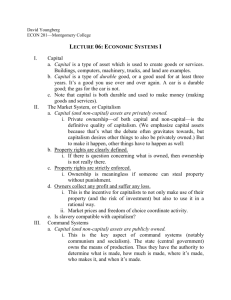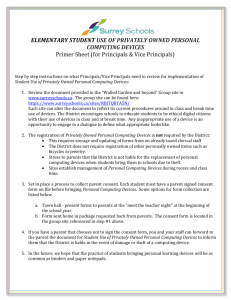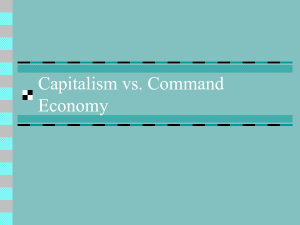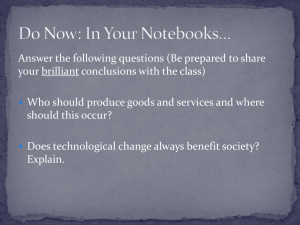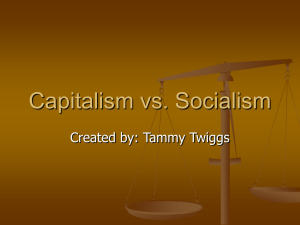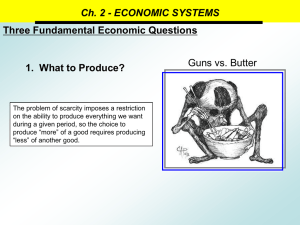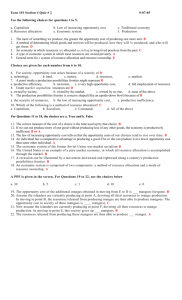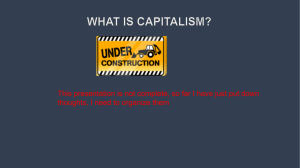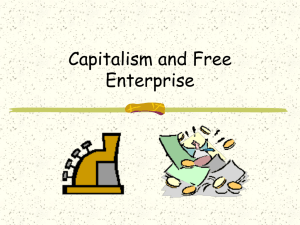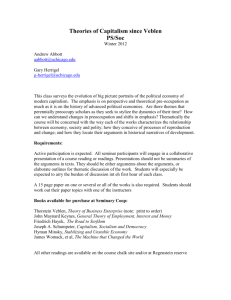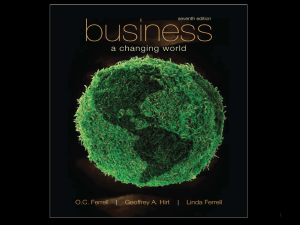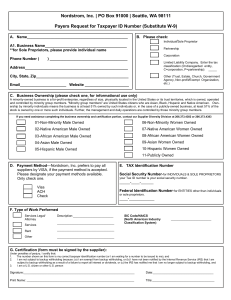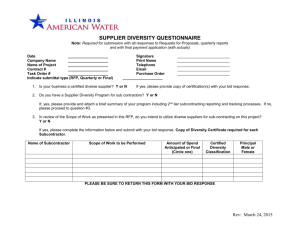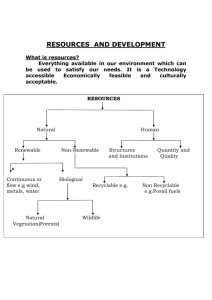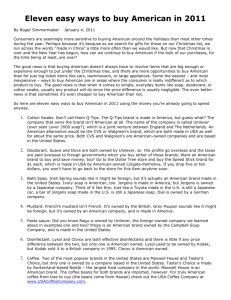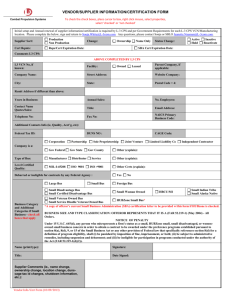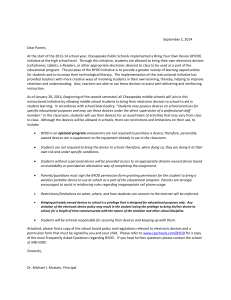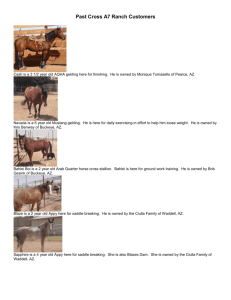Economic Systems
advertisement
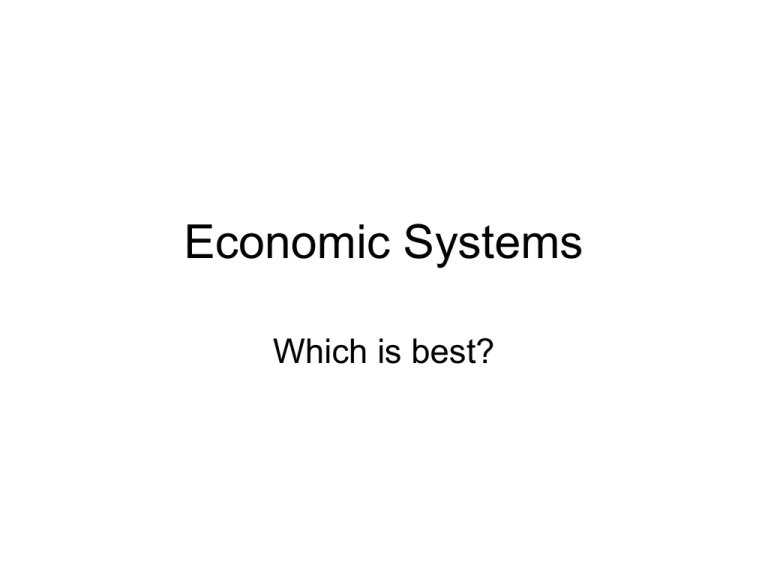
Economic Systems Which is best? Industrially advanced economies differ on two key levels: • Who owns the means of production? • How is economic method coordinated and directed? Economic Questions: – What will be produced? – How will it be produced? – Who will consume what is produced? Pure Capitalism (laissez faire): • An economic system (method of organization) in which property resources are privately owned and markets and prices are used to direct and coordinate economic activity. – Voluntary Exchange – Consumer Sovereignty – Profit Motive – Property Rights – Entrepreneurship The Command economy: • An economic system (method of organization) in which property resources are publicly owned and Central economic planning is used to direct and coordinate economic activities. Note: Traditional roles and Customs--The Traditional Economic System Mixed Systems (a.k.a.--Mixed Capitalism, Modified Private Enterprise System) • An economy in which both government and the private decisions determine how resources are allocated. Types of Economic Systems Economic System Who owns means of production? How is the economic level coordinated? Pure Capitalism Resources Privately Owned Markets and Prices Command Economy Resources Publicly Owned Central Economic Planning Mixed Economy Public and Private ownership Markets and Government (Laissez Faire) The Spectrum of Economic Systems Figure 18.1 Command Economies Advantages • Systems can change direction drastically in a relatively short time • Many health and public services are available to everyone at little or no cost regardless of income Command Economies Disadvantages • Not designed to meet the wants of the consumers, even though many basic needs are provided for. • The system gives no incentive to work hard. Work ethic? • A large decision-making bureaucracy. • Inflexible in dealing with day-to-day problems. Communism Ownership of Resources • all productive resources are government owned and operated. Allocation of Resources • Centralized planning directs all resources. Role of Government • Government makes all economic decisions. Capitalism Advantages of Capitalism (pg.36-38) – over time , it can adjust to change. – It’s a high degree of individual freedom. – Relatively small degree of government interference. – The decision making is decentralized, not concentrated. – Variety of goods and services available to consumers. – High degree of consumer satisfaction. Capitalism Disadvantage (pg.39) • Does not provide basic needs of society. • Does not provide service that people value highly. • High degree of uncertainty that workers face as a result of change. • It can fail if three conditions are not met. – Competitive markets (See: Market Failure) – Resources free to move from one activity to another – Adequate/Equal Information From Centrally Planned to Freedom of Choice • Transition: The process of shifting from a centrally planned economy toward a mixed economic system with markets playing a greater role in the economy. • Privatizing: The process of selling state firms to individuals. EXAMPLES: • Current day Russia • East/West German Reunification ISSUES: • Unemployment • Ethnocentrism • Productivity • Work Ethic Socialism Ownership of Resources • basic productive resources are gov’t owned and operated ; the rest are privately owned. Allocation of Resources • Government plans ways to allocate resources in key industries. Role of Government • Government directs the completion of its economic plans in key industries. Economic and Social Goals (pp. 41-43) • • • • Economic Freedom Economic Efficiency Economic Equity Economic Security • • • • Full Employment Price Stability Economic Growth Future Goals •What are the Trade Offs (Opportunity cost) of using the government to manipulate the economy? •What is the sacrifice for promoting equity and/or efficiency? Roles of the Government IN A MARKET BASED ECONOMY: (pp. 50-51) Providing goods and services • The government provides all sorts of goods and services, including streets and highways, education, parks, public safety, national defense and space exploration (i.e. Protector, Provider/Consumer and Promoter of National Goals). Redistributing income— • In a market-based economy, some people earn much more income than others, and the government redistributes income to the poor (Provider) Taxation— • The government uses taxes on various goods and services to support its spending programs. Regulation of business practices— • The government uses regulations to control pollution, encourage competition among firms, and improve the safety of consumer goods. Trade Policy— • The government uses various policies to control international trade, promoting some types of trade and restricting others. (i.e. Promoter of National Goals) (O'Sullivan & Sheffrin, 1998)
